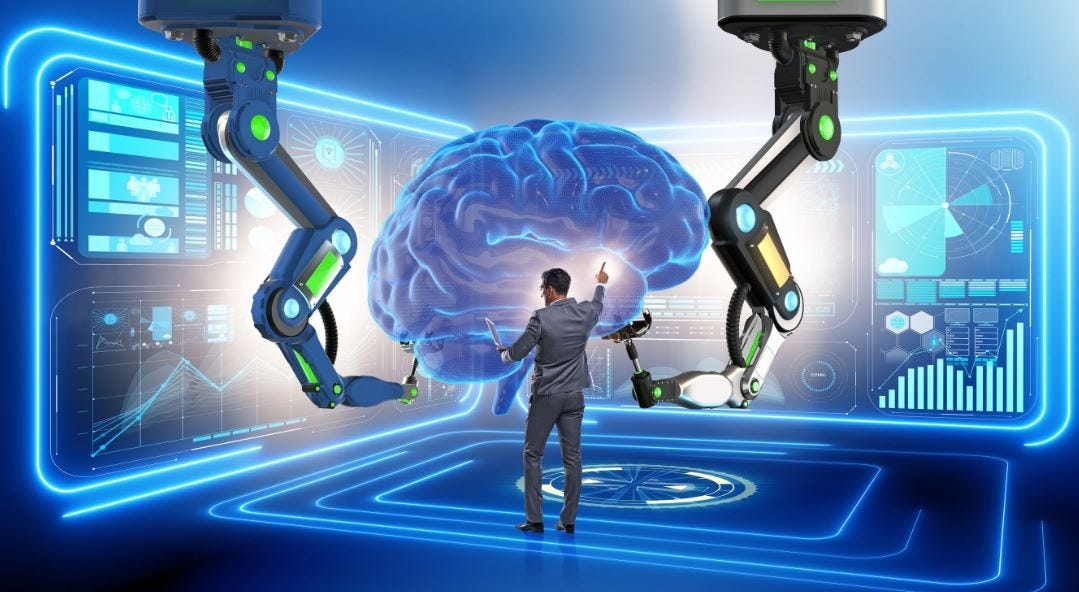Introduction
Artificial Intelligence (AI) is no longer a futuristic concept reserved for sci-fi movies or advanced robotics. Today, AI tools are embedded in the devices, apps, and services we use every day from recommending songs on Spotify to optimizing our morning commute or helping us stay focused and healthy.
But the real question is: How can AI help in daily life beyond just convenience? And more importantly, how to use AI tools to transform your productivity, improve your health, and build better habits?
This guide will walk you through the role of AI in daily life, offer examples of AI-powered tools, and show you how to integrate them smartly with your routine. Let’s dive in.
1. The Role of AI in Daily Life

AI is not just automation; it’s intelligent decision-making, learning from data, and predicting outcomes. Here’s a look at how AI already influences your daily routine:
- Wakes you up with smart alarms based on your sleep cycle
- Curates your news feed based on your interests
- Suggests meetings, replies, or tasks using email assistants
- Tracks your health through wearables and smart devices
- Improves learning through personalized recommendations
These are just surface-level examples. As AI tools become more personalized and context-aware, their uses in daily life are expanding into everything from goal setting to mental well-being.
2. How to Use AI Tools to Boost Productivity
A. AI-Powered Task Management
Tools like Notion AI, ClickUp, Motion, and Sunsama help automate your workflow. They do more than set reminders—they analyze your schedule, understand your priorities, and optimize task timings.
Example Use Case:
- You input your weekly goals into Notion AI
- The tool schedules tasks based on time sensitivity and work style
- It reminds you of unfinished tasks and suggests when to tackle them
Benefits:
- Reduces decision fatigue
- Minimizes multitasking
- Enhances time allocation
B. AI Assistants for Writing & Communication
If you’re overwhelmed by emails or content creation, AI tools like ChatGPT, GrammarlyGO, or Jasper.ai can assist in writing emails, reports, or social media posts.
Key Use Cases:
- Summarize long emails
- Generate professional replies
- Draft blog posts, captions, or LinkedIn updates
Tip: You can also train ChatGPT to match your tone or brand voice using custom instructions.
C. Smart Meeting Assistants
Tools like Otter.ai, Fireflies.ai, and Krisp automate meeting notes, summarize conversations, and cancel background noise during calls.
Use them to:
- Transcribe meetings in real-time
- Share highlights with your team
- Save hours of manual note-taking
3. How to Use AI for Health and Fitness

A. AI-Powered Fitness Apps
Fitness apps like Fitbod, Freeletics, or Vi Trainer use AI to create custom workouts based on your performance history, injuries, and goals.
Features include:
- Adaptive workout routines
- Voice coaching
- Predictive recovery suggestions
Pair these with smart devices (Apple Watch, Fitbit, WHOOP) for real-time biometrics analysis.
B. Nutrition and Diet Tracking
AI tools such as MyFitnessPal, Yazio, or Lumen offer:
- Meal suggestions based on preferences
- Calorie tracking using image recognition
- Gut-health insights using breath analysis
AI ensures your diet adapts with your goals, metabolism, and even your mood.
C. Mental Health and Mindfulness
Apps like Wysa, Youper, and Replika use conversational AI to:
- Offer guided CBT techniques
- Detect mood changes
- Provide journaling prompts or breathing exercises
AI is not a replacement for a therapist but can help manage anxiety, stress, or burnout proactively.
4. Building Better Habits with AI
The secret to lasting change is not motivation — it’s habit formation. AI can act as your digital accountability coach.
A. AI Habit Trackers
Apps like Habitica, Coach.me, and Streaks use gamification and AI suggestions to help build consistency.
How It Works:
- AI suggests optimal habit timings (based on your lifestyle)
- Sends nudges and reminders before you’re likely to procrastinate
- Adapts your habit goals based on performance trends
B. Sleep Optimization
Sleep quality affects everything from focus to emotional health. AI-powered tools like Sleep Cycle, Pillow, and Oura Ring analyze:
- Sleep stages (REM, deep, light)
- Movement and noise disturbances
- Wake-up time optimization based on circadian rhythm
Pro Tip: Use AI-generated sleep reports to modify habits like caffeine intake or screen time.
- AI in Daily Life: Personal Assistant & Smart Home Integration
From voice commands to automated routines, AI is also at the heart of smart home technology.
Top AI Tools:
- Google Assistant, Amazon Alexa, Apple Siri
- Smart thermostats like Nest (predict optimal home temperature)
- Smart fridges (track expiry dates and recommend recipes)
AI Use Cases at Home:
- Turn off lights or AC based on movement patterns
- Create bedtime routines: dim lights, play sleep music, mute notifications
- Remind you to hydrate or stretch if you’ve been idle too long
6. AI in Learning and Upskilling
Whether you’re a student or professional, AI helps personalize education.
AI Tools for Learning:
- Duolingo: AI-tailored language lessons
- Khan Academy (with Khanmigo): AI tutors for STEM subjects
- Quizlet: Smart flashcards with adaptive testing
- ChatGPT: Personalized explanations, coding help, writing practice
AI doesn’t just give answers it understands your learning pace and style to create a personalized curriculum.
7. Future Uses of AI in Daily Life

The future of AI in daily routines is more autonomous, predictive, and personalized.
Emerging Trends to Watch:
- AI Personal Finance Managers: Tools like Cleo or Plum auto-budget based on your spending habits
- Wearable AI Healthcare: Early detection of diseases through continuous monitoring
- AI Relationship Coaches: Helping couples track emotional patterns and improve communication
In the near future, AI may anticipate your needs before you even express them, optimizing both lifestyle and longevity.
8. Challenges and Ethical Use of AI in Daily Life
Despite its advantages, AI must be used responsibly.
Common Concerns:
- Privacy: Always check app permissions and data storage policies.
- Bias: AI tools can reflect the biases in the data they were trained on.
- Over-reliance: Don’t let AI replace human reasoning or emotional intelligence.
Tip: Use AI to augment, not replace, your decision-making.
9. How Finthecoder Can Help You Build AI-Powered Tools
At Findthecoder, we specialize in AI-integrated social and business app development, from productivity boosters to wellness platforms.
Our Services Include:
- Custom chatbot and voice assistant development
- AI fitness and habit-tracking integrations
- E-learning platforms with adaptive content
- Data-driven health monitoring apps
- Smart scheduling and automation tools
Whether you’re building a personal productivity app or launching an AI-based startup, HW Infotech delivers robust, scalable solutions with real-world impact.
Conclusion
AI isn’t just a high-tech buzzword — it’s a daily utility tool. From helping you write better emails and stick to workout plans to enhancing sleep and supporting mental health, the uses of AI in daily life are only growing.
By understanding how to use AI tools effectively and responsibly, you can radically improve your productivity, health, and habits — without burnout.

